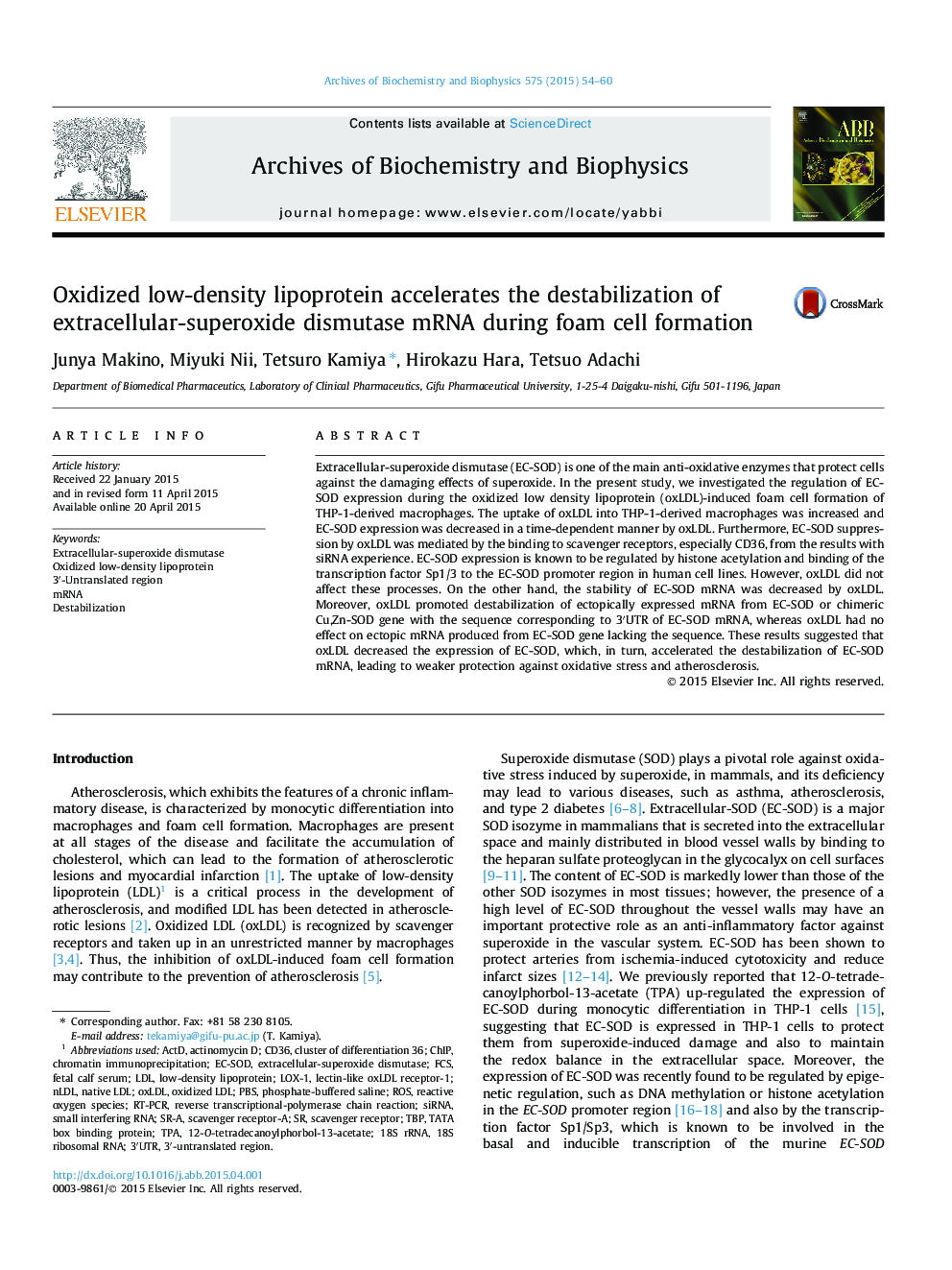| Article ID | Journal | Published Year | Pages | File Type |
|---|---|---|---|---|
| 1924944 | Archives of Biochemistry and Biophysics | 2015 | 7 Pages |
•OxLDL increased lipid uptake into THP-1 macrophages and decreased EC-SOD expression via CD36.•The stability of EC-SOD mRNA was decreased by the treatment with oxLDL.•OxLDL promoted the destabilization of ectopically expressed mRNA from EC-SOD.•OxLDL destabilized mRNA from chimeric Cu,Zn-SOD gene with 3′UTR of EC-SOD mRNA.•OxLDL had no effect on the stability of ectopic mRNA lacking 3′UTR of EC-SOD mRNA.
Extracellular-superoxide dismutase (EC-SOD) is one of the main anti-oxidative enzymes that protect cells against the damaging effects of superoxide. In the present study, we investigated the regulation of EC-SOD expression during the oxidized low density lipoprotein (oxLDL)-induced foam cell formation of THP-1-derived macrophages. The uptake of oxLDL into THP-1-derived macrophages was increased and EC-SOD expression was decreased in a time-dependent manner by oxLDL. Furthermore, EC-SOD suppression by oxLDL was mediated by the binding to scavenger receptors, especially CD36, from the results with siRNA experience. EC-SOD expression is known to be regulated by histone acetylation and binding of the transcription factor Sp1/3 to the EC-SOD promoter region in human cell lines. However, oxLDL did not affect these processes. On the other hand, the stability of EC-SOD mRNA was decreased by oxLDL. Moreover, oxLDL promoted destabilization of ectopically expressed mRNA from EC-SOD or chimeric Cu,Zn-SOD gene with the sequence corresponding to 3′UTR of EC-SOD mRNA, whereas oxLDL had no effect on ectopic mRNA produced from EC-SOD gene lacking the sequence. These results suggested that oxLDL decreased the expression of EC-SOD, which, in turn, accelerated the destabilization of EC-SOD mRNA, leading to weaker protection against oxidative stress and atherosclerosis.
